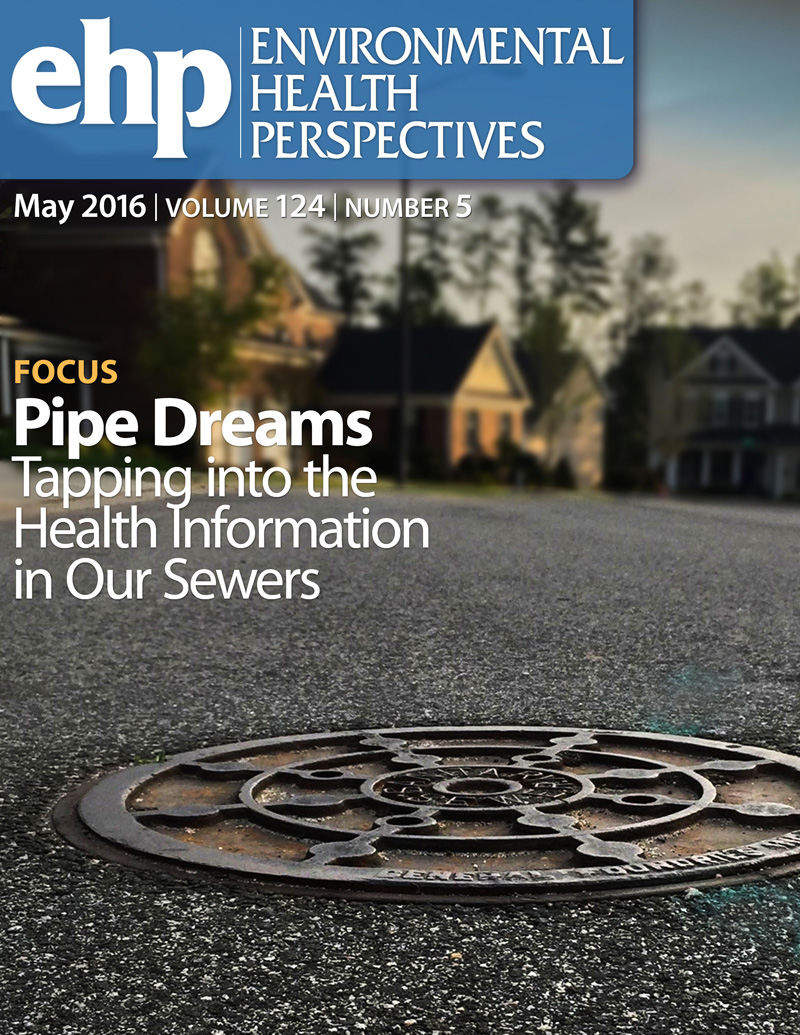重新认识和定义环境健康中的暴露学:扩大健康研究范围。
IF 10.1
1区 环境科学与生态学
Q1 ENVIRONMENTAL SCIENCES
引用次数: 0
摘要
背景暴露组学(Exposomics)是对暴露组的研究,目前正在蓬勃发展,但该领域还没有明确的定义。所谓 "暴露组",是指在人的一生中受到的所有环境影响以及相关的生物反应。然而,这一定义与 "环境 "一词的定义非常相似--即围绕并影响生物体生命和发育的外部因素和条件。因此,暴露体似乎只不过是环境的同义词,而暴露组学则是环境研究的同义词。因此,有些人将 "标准 "的环境健康研究与新造的 "暴露体 "一词重新组合,而另一些人则忽视或试图放弃 "暴露体 "这一看似多余的概念。暴露组学应被定义为环境健康领域的一项研究计划,旨在以发现为导向的综合方法来确定人类健康的环境决定因素。与人类基因组计划的目标类似,暴露组学旨在分析暴露的全部复杂性及其相应的生物反应。我们认为,暴露量子学研究人员应采用我们对暴露量子学的重新认识,并重点关注其研究计划的有效性和完整性:研究计划的目的和原则。我们建议,暴露组学研究人员应协调撰写评论,以评估该计划的成效和完整性,并为暴露组学研究人员提供一个平台,以确定他们对该领域的愿景。https://doi.org/10.1289/EHP14509。本文章由计算机程序翻译,如有差异,请以英文原文为准。
Reconceptualizing and Defining Exposomics within Environmental Health: Expanding the Scope of Health Research.
BACKGROUND
Exposomics, the study of the exposome, is flourishing, but the field is not well defined. The term "exposome" refers to all environmental influences and associated biological responses throughout the lifespan. However, this definition is very similar to that of the term "environment"-the external elements and conditions that surround and affect the life and development of an organism. Consequently, the exposome seems to be nothing more than a synonym for the environment, and exposomics a synonym for environmental research. As a result, some have rebranded their "standard" environmental health research with the neologistic exposome term, whereas others ignore or seek to abandon the seemingly redundant concept of the exposome.
OBJECTIVES
We argue that exposomics needs to sharpen its mission focus to counteract this apparent redundancy. Exposomics should be defined as a research program in environmental health aimed at enabling a comprehensive and discovery-driven approach to identifying environmental determinants of human health. Similar to the aim of the Human Genome Project, exposomics aims to analyze the complete complexity of exposures and their corresponding biological responses. Exposomics' primary premise is that the existence of undiscovered, potentially interconnected, nongenetic (environmental) risk factors for health necessitates a comprehensive discovery-driven analysis approach.
DISCUSSION
We argue that exposomics researchers should adopt our reconceptualization of exposomics and focus on the productiveness and integrity of their research program: its purpose and principles. We suggest that exposomics researchers should coordinate the writing of reviews that assess the program's productiveness and integrity, as well as provide a platform for exposomics researchers to define their vision for the field. https://doi.org/10.1289/EHP14509.
求助全文
通过发布文献求助,成功后即可免费获取论文全文。
去求助
来源期刊

Environmental Health Perspectives
环境科学-公共卫生、环境卫生与职业卫生
CiteScore
14.40
自引率
2.90%
发文量
388
审稿时长
6 months
期刊介绍:
Environmental Health Perspectives (EHP) is a monthly peer-reviewed journal supported by the National Institute of Environmental Health Sciences, part of the National Institutes of Health under the U.S. Department of Health and Human Services. Its mission is to facilitate discussions on the connections between the environment and human health by publishing top-notch research and news. EHP ranks third in Public, Environmental, and Occupational Health, fourth in Toxicology, and fifth in Environmental Sciences.
 求助内容:
求助内容: 应助结果提醒方式:
应助结果提醒方式:


